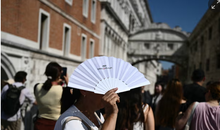
 Flash News
Flash News
Korça/ 40-year-old man jumps from fifth floor balcony, in critical condition
Croatia restores compulsory military service
Illegal constructions in Theth, Manja demands disciplinary proceedings against prosecutor Elsa Gjeli
Details from the murder of Renis Dobra, the perpetrators came with 2 Range Rover cars from Rrëshen
The Supreme Court left him in prison, Meta addresses the 'Constitution'

Boshko Jakšič / Politika newspaper
Serbia's foreign policy can best be described with the phrase of the famous Sicilian Tomaso di Lampeduza: "Everything must be changed, in order to change nothing."
"Serbia has continued with the same format of harmonization with the foreign and security policy with the EU as in 2022", it is stated in the Analysis of the harmonization of Serbia with the measures and declarations of the foreign policy of the European Union: "Report for the half first of 2023", which was made public by the Center for International and Security Affairs (ISAC fund) and also made public in the Serbian language by the "European Western Balkans" portal.
Regarding the war in Ukraine, Serbia still continues to maintain an ambivalent position, thus through staying in the country and (not) aligning with the Western punitive measures against Russia in 2022, reached the alignment figure at 48 percent – the smallest figure among all candidate countries for membership in the EU from the Western Balkans.
Only thanks to the slow European pace of imposing new sanctions packages against Moscow, Serbia managed to increase the harmonization rate to 52 percent this year, but even this is ten points lower than in 2021, before the outbreak of war in Ukraine, which hegemonized Europe leaving Belgrade to rethink.
"However, there is a perception that the pressures from Brussels are smaller and that the EU prefers more stability in the region, which cannot exist without Serbia, the message from the EU is completely clear. The non-harmonization with the sanctions against Russia can have long-term consequences in the membership process, but also in the formation of the attitude of the EU states towards Serbia", says Igor Novakovići, one of the authors of the report, for EVB.
For the sake of truth, Serbia, at the beginning of March 2022, harmonized with the statement of the High Representative Jozef Borell, which condemned the violation of the territorial integrity of Ukraine. It was nevertheless an important decision considering that Serbia until then had not accepted any statement from the EU that could have any implicit connotations against Russia. Belgrade agreed that the political text of the declaration should not contain sanctions packages. Then he also voted for the UN General Assembly Resolution condemning Russia. Despite the illogicalities, everything that has been done is the result of the awareness that otherwise Serbia would violate the principles of sovereignty and territorial integrity with which it protects Kosovo, while it has closed its doors to the West.
In the April report of the European Parliament on Serbia, the reporter Vladimir Bilcik joined the constellation of European politicians who criticize Serbia as the only country in the region and, together with Belarus, the only ones in Europe, that have not imposed sanctions on Russia. Vučić managed to oppose the sanctions for more than a year and a half, he faced the pressure even in front of the local public and can boast of this fact, but how to measure the invisible damages that this attitude brings because the West tolerates but does not forgive.
But the punitive measures against Russia are not the only point of disagreement of Serbia. They are essentially critical, the authors wrote last week in the ISAC study report. They are related to security issues of direct importance to the EU, and as a result, the member countries carefully follow the harmonization with the key issues for the Union's position in the world and its announced foreign policy goals. Because Serbia, as a rule, refuses to join any declarations and measures against Russia and China, which it has declared as key allies in the defense of Kosovo. Aleksandar Vucic, as the main creator of Serbian diplomacy, does not want to hinder cooperation with his "friend" Vladimir Putin and his "brother" Si Gjinping. He does not give up friendship with the East, convinced that the West will continue to tolerate his "black sheep" orientation.
Serbia has approved 31 recent statements and measures, but has not agreed with 31 points; 13 relating to the war in Ukraine, seven to Iran, four to the EU's global human rights sanctions regime and one to Belarus (about the fraudulent presidential election although in 2021 it condemned ), Moldova, Syria, Mali and terrorism. All of these, except Iran, are linked to the Kremlin or to entities and individuals from Russia.
The way out of the "balloon of untruths", as Vučić himself once called it, is naturally only related to the attitude towards the Ksoova issue, but not to the ties with Russia and China, which are the main obstacles to harmonization with the policy of outside the EU and with the West as a whole.
Vuçiçi mbështetet në këshillat e kryeministrit hungarez Viktor Orban, ndërsa në politikën e jashtme mbështet Moskën deri në kufinjtë e irritimit të Brukselit. Orbanit i lejohet. Hungaria është antëare e BE-së dhe kësisoj Unioni e ka shumë të vështirë të përjashtojë Hungarinë, megjithëse edhe për këtë mundësi po diskutohet. Edhe Vuçiçit gjithashtu mund t’i lejohet, por ama me çmimin e largimit nga anëtarësimi. Retorika e tij anti-BE në vë përpara dilemës nëse vërtetë synimi është që Serbia të hyjë në BE apo bëhen vetëm lojëra fjalësh që reduktohen në shfrytëzimin e donacioneve dhe investimeve për zhvillimin e vendit – gjë e cila është e nevojshme vetëm për forcimin e pozitës personale të Vuçiçit dhe të partisë së tij në radhët e zgjedhësve.
Këtu nuk ka asgjë të rastit. Nga Vuçiçi mund të dëgjohen mirënjohje për investitorët europianë dhe falenderime për kreditë me të cilat paguan rritjen e pagave dhe të pensioneve, por kush ka dëgjuar që presidenti të flasë për vlerat euroipiane: demokracinë, lirinë e mediave, institucione të forta dhe të pavarura, media që duhet të bëjnë punën e tyre.
Serbia i ka hapur bisedimet per antarësimin në BE në muajin janar të vitit 2014, anëtarësimi në BE është shënuar si proritet shtetëror, por propaganda antieuropiane vazhdon që prej vitesh dhe secili e ka të qartë se tabloidët e rregjimit janë megafonë të pushtetit. Ndërsa glorifikohen Rusia dhe Kina, mediat që veprojnë me telekomandë merren me komplotet e Perëndimit kundër presidentit, pushtetit dhe vendit në tërësi. Kërkesat për harmonzimin me BE-në interpretohen si “shantazhe dhe presione të papara” të “armiqve” të deklaruar të Serbisë. Rezultati është i pritshëm; rënie e ndjeshme e entuziazmit të opinionit publik për integrimin europian.
Russia's influence remains a problem even in Belgrade, they know this best. What can be expected when the head of the information service declares himself an open pro-Putinist who couldn't wait to go to Moscow? The same path has been warned for the head of diplomacy Ivica Dacic - at a time when many others avoid such open provocations.
How can one expect a substantial rapprochement with the Union, voluntary harmonization with its foreign and security policy? The Union continues to be far from Serbia, more than the government talks about it. And exclusively thanks to the power itself.
*Translated by: Jelal Fejza
Latest news


Malltezi: SPAK admits, we are in a process that began with Balla's false report
2025-07-10 22:34:16

Si të çliroheni nga bllokimet emocionale me anë të ushtrimeve
2025-07-10 21:57:24

Lala: Veliaj wanted to return as mayor
2025-07-10 21:40:46

VIDEO/ Brawl in Bolivian parliament, deputies physically clash
2025-07-10 21:20:30


Albania experienced one of the longest heat waves of the last decade
2025-07-10 21:01:09

The Government approves new procedures for declaring residence in e-Albania
2025-07-10 20:39:32

Koka: Northerners will not forget Edi Rama's racist operation in Theth
2025-07-10 20:18:24
The 3 zodiac signs that will be most affected by the 'Full Moon' of July 10
2025-07-10 20:04:49
New director of the National Center of Cinematography appointed
2025-07-10 19:51:12
Korça/ 40-year-old man jumps from fifth floor balcony, in critical condition
2025-07-10 19:40:19
'Tired Woman'/ The Syndrome That Affects Thousands of Women Every Day
2025-07-10 19:34:02
Jane Birkin's original Hermès bag sells for $10 million
2025-07-10 19:26:22

Britain-Ukraine agreement signed for 5,000 Thales missiles
2025-07-10 19:00:25
Fire in Zvërnec, flames endanger two hotels
2025-07-10 18:57:19
Croatia restores compulsory military service
2025-07-10 18:39:01
Spahia: The great truth of the strong accusation of the residents of Theth
2025-07-10 18:35:07


The Supreme Court left him in prison, Meta addresses the 'Constitution'
2025-07-10 17:57:21
New punishment with 'new' regulations
2025-07-10 17:54:46
EU translator fired over fears for Zelenskyy's safety
2025-07-10 17:45:37
'You are a policeman, but not God, take my soul', protest for Agon Zejnullahu
2025-07-10 17:41:21


Video/ Rama repeats the scenario, kneels before Meloni again
2025-07-10 16:56:31
He set fire to a plot of olive trees, 50-year-old man arrested in Shijak
2025-07-10 16:46:19

Rubio: US and Russia have exchanged new ideas for Ukraine peace talks
2025-07-10 16:36:20
Death of 27-year-old, Lipjan Police Commander Resigns
2025-07-10 16:21:28
Video/ An apartment burns in Tirana near the New Bazaar
2025-07-10 16:09:36


Jensila lights up the internet with her birthday greetings to Ledri
2025-07-10 15:42:08
They're full of pesticides! List of 12 products we need to be careful of
2025-07-10 15:31:04

Worker falls from scaffolding in Shëngjin, urgently sent to Trauma
2025-07-10 15:11:03
Malltezi: Within one day they seized my accounts, properties and shares
2025-07-10 15:01:23
EU: Israel has agreed to more aid to Gaza
2025-07-10 14:55:19
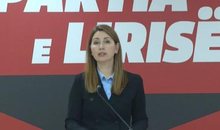

Murder of Reni Dobra, 23-year-old's vehicle pulled from the water
2025-07-10 14:29:23
Trump's tariffs on Brazil raise coffee prices
2025-07-10 14:16:07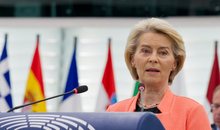
Ursula von der Leyen survives no-confidence vote
2025-07-10 14:04:27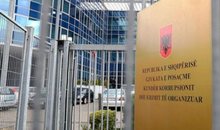


Fire in Lezha, flames near electrical substation
2025-07-10 13:32:24
Residents clash with police in Theth, a woman faints
2025-07-10 13:24:38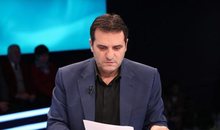
"Rama and Xanun"
2025-07-10 13:15:46

Zodiac signs most likely to get divorced in July 2025
2025-07-10 12:45:51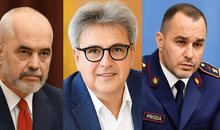
A scapegoat for an illegitimate Republic
2025-07-10 12:35:02
"He has devastated his own nation"/ Berisha: Rama imprisons his opponents!
2025-07-10 12:26:54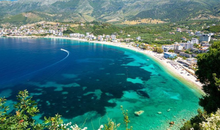

Albanian man injured with knife in Italy
2025-07-10 12:08:55
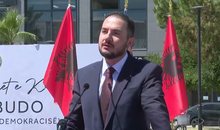


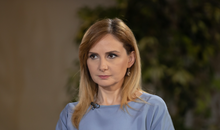


23-year-old in Mat drowned with rope, 4 suspects are being held
2025-07-10 10:58:53
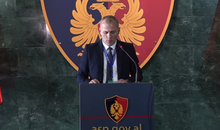
After the dismissals, the new director of the Shkodra Police is appointed
2025-07-10 10:30:10
BIRN: Rama's action for public spaces, a repeated spectacle
2025-07-10 10:29:11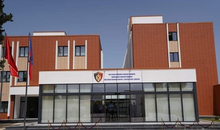
Action in Theth, Shkodra Police leaders dismissed
2025-07-10 10:16:28
Fatal accident on the Tirana-Durres highway
2025-07-10 10:01:58
The incinerator does not exist, but the government continues to increase funds
2025-07-10 09:51:45
Albania is aging at a rapid pace! 30% of the population is over 60 years old
2025-07-10 09:46:23
End of an era, Modric says 'goodbye' to Real Madrid
2025-07-10 09:36:09
Mount Dukat has been on fire for 6 days, residents request air intervention
2025-07-10 09:27:24

"Poverty on the rise"/ DW: Many people in Germany are not getting paid
2025-07-10 09:08:06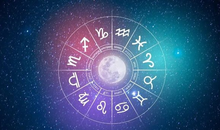
Horoscope, what do the stars have in store for you today?
2025-07-10 08:51:59


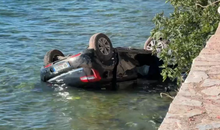

The scorching heat returns, the thermometer climbs to 40°C
2025-07-10 07:58:52
Morning Post/ In 2 lines: What mattered yesterday in Albania
2025-07-10 07:46:35
Tourist operator in Theth: They are demolishing our houses without warning
2025-07-09 22:54:57
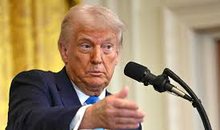
Trump and Israeli commander warn: Gaza ceasefire could be near
2025-07-09 22:13:21
Fire in Elbasan Landfill, pedagogue: It is a cancer and environmental crime
2025-07-09 21:54:47
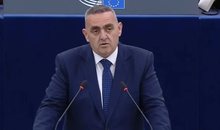

Dangerous summer, number of snake bites increases
2025-07-09 21:22:13
Berisha appeals again: Stop state terror against the residents of Theth!
2025-07-09 21:15:36
'Kissing disease' virus linked to several forms of cancer
2025-07-09 21:04:44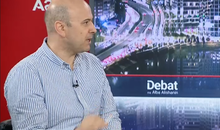
Malltezi confesses after release: Justice has become a political weapon
2025-07-09 20:51:48
Vokshi: Albania's EU integration has stalled due to lack of free elections
2025-07-09 20:37:21